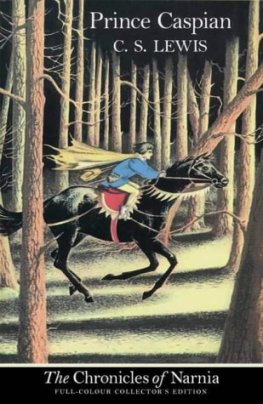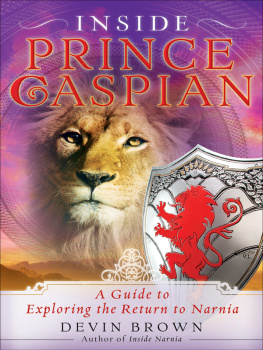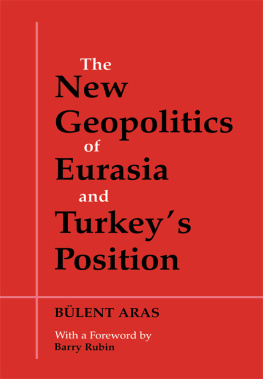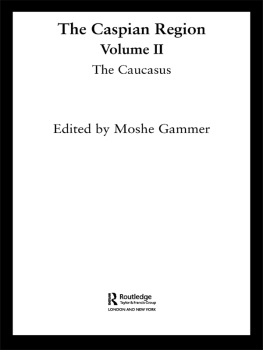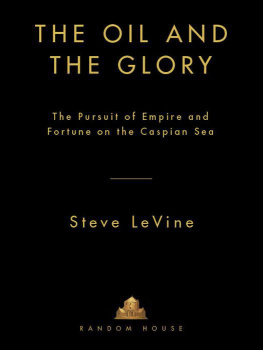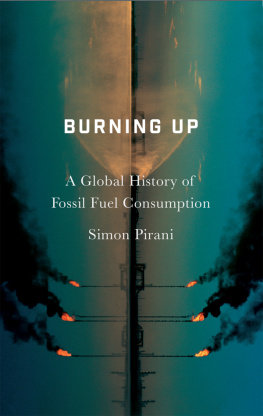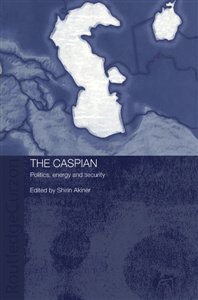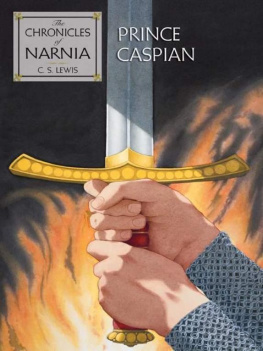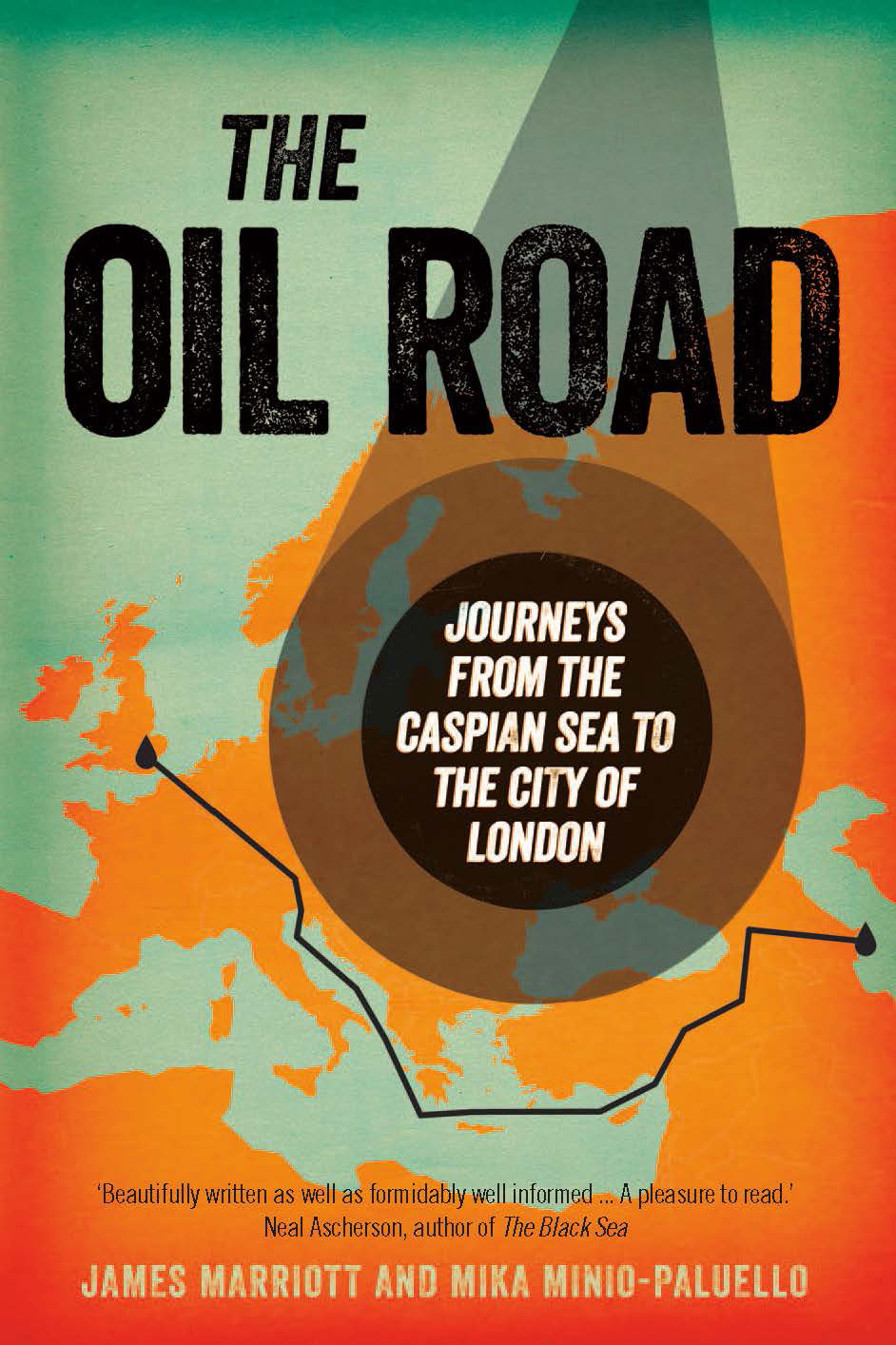
The Oil Road
Journeys from the Caspian Sea to the City of London
James Marriott and Mika Minio-Paluello

First published by Verso 2012
James Marriott and Mika Minio-Paluello 2012
All rights reserved
The moral rights of the authors have been asserted
1 3 5 7 9 10 8 6 4 2
Verso
UK: 6 Meard Street, London W1F 0EG
US: 20 Jay Street, Suite 1010, Brooklyn, NY 11201
www.versobooks.com
Verso is the imprint of New Left Books
Epub ISBN-13: 978-1-84467-927-0
British Library Cataloguing in Publication Data
A catalogue record for this book is available from the British Library
Library of Congress Cataloging-in-Publication Data
Marriott, James.
The oil road : travels from the Caspian to the city / James Marriott and Mika Minio-Paluello.
p. cm.
Includes bibliographical references and index.
ISBN 978-1-84467-646-0 (hardback : alk. paper) ISBN 978-1-84467-927-0 (ebook)
1. Petroleum industry and tradeAzerbaijanBaku. 2. Petroleum industry and tradeEurope. 3. Caspian Sea. I. Minio-Paluello, Mika. II. Title.
HD9575.A943B356 2012
338.27282094754dc23
2012019763
Typeset in Minion Pro by Hewer Text UK, ltd, Edinburgh
Printed and bound in the US by Maple Vail
What has its roots in the sea, its trunk in the mountains,
and its branches in the cities?
CONTENTS
List of Maps
FOREWORD AND ACKNOWLEDGEMENTS
The Oil Road is a travelogue in pursuit of oil. Rising from the Caspian Sea, we tracked BPs pipeline westwards over the Caucasus Mountains and Anatolian plateau before it descends to the Turkish coast. As the oil was carried onwards aboard tankers and through further pipes, so our journey continued, across the Mediterranean and the Alps, to Bavaria and London. From the revolutionary Futurism of 1920s Baku to the unblinking capitalism of our city, the drive to control oil reserves and hence people and events has shattered nature and shaped societies. The stupendous wealth of Azerbaijani crude has long inspired dreams of a world remade. Thus this book travels through both time and space, exploring a landscape of power, resistance and profit.
While the narrative portrays a particular journey made in 2009, it refers back to stories we gathered on travels made to the places described since 1998. All of the conversations portrayed are based on recordings or notes taken at the time. Very occasionally names have been changed to avoid putting individuals at risk. Several of the main characters in the book have kindly read and checked the final text.
The Oil Road passes through the lands of ten major languages, and we have tried to draw out this richness in the story, using the orthography particular to these languages where possible. Transcribing Azeri, Georgian, Kurdish and Turkish names into English can be challenging, and we apologise for our mistakes and shortcomings.
The pipeline systems that we travel also have their own tongue, conventionally described in the numerical language of engineering. We have used this numbering pattern in the headings of sections that take place directly on the route itself, giving both the length of each pipeline section to that location, its kilometre point or KP, and the distance travelled along the entire Oil Road. Hence a section title such as:
BTC KP 484 671 km Krtsanisi, Georgia
We have used the measurement of the sea, nautical miles, to describe the passage of the tanker. Those locations not directly on the route of the oil such as Baku itself are without numbers.
This book would have been impossible without the close collaboration of friends who we worked with over the past decade as Platform and our allies scrutinised and challenged the industrial project and the governments behind it. We would particularly like to thank some remarkable people brave, skilled and determined: Mayis Gulaliyev, Zardusht Alizade, Manana Kochladze, Kety Gujaraidze, Ferhat Kaya, Ali Kurdolu , Mehmet Ali Uslu, Mustafa Gndodu, Kerim Yldz , Elena Gerebizza, Antonio Tricarico, Greg Muttitt, Mark Brown, Nick Hildyard and Hannah Griffiths.
There are many others who have engaged in the issues in the book with perseverance and brilliance, but whom we have been unable to mention in the text, including Mirvari Gahramanli, Rochelle Harris, Petr Hlobil, Martin Skalsky, Yuri Urbansky, Sebastien Godinot, Doug Norlen, Regine Richter, Piotr Trzaskowski, Greig Aitkin, Andrea Baranes, Pippa Gallop, Carol Welch, Karen Decker, Steve Kretzman, Wilimijn Nagel, Paul de Clerk, Clive Wicks, Hannah Ellis, Rachel Bernu, Andy Rowell, Michael Gillard, Nick Rau, Tony Juniper, Foye Hatton, Alexandra Woodsworth, Steve, Catriona Vine, Sally Eberhardt, Andrew Barry, Kate Hampton, Rob Newman, Anke Stock, Mark Thomas, Kate Geary and Anders Lustgarten.
In addition to those mentioned above, we are extremely grateful for the time and assistance given to us during our travels by a number of dedicated individuals, including Arzu Abdullayeva, Mehdi Gulaliyev, Ramazi Lomsadze, Marzia Piron, Simone Libralato, Bruno Lisjak, Rudi Remm, Guy Chazan, lk Gney, Guney Yildiz, Yaprak Yildiz, Can Gunduz, Oktay Ince, Mali Mehmet Ali Uzelgun, Idil Soyseckin and Tennur Bas.
We would particularly like to thank the people who live along the route of the pipelines, for inviting us into their homes, trusting us with their stories and sharing their fears and frustrations, despite the repression and the fact that we sound and look like the many others from the cities who brought the pipelines with them. We could only write this book because of the freedom that we unlike many of the people we met have to travel, move across borders and access people. The book is also a product of our particular set of privileges, which also frame what we see and experience and what we dont.
The research and travel for this book was graciously funded by the Amiel and Melburn Trust and the Charles Stewart Mott Foundation. Early research was funded from a fellowship given by the Environment Foundation awarded by John Elkington. We have also been financially supported by the Arts Council England, the Joseph Rowntree Charitable Trust, the Roddick Foundation and the Sigrid Rausing Trust. We would particularly like to thank Gordon Roddick, Sandra Smithey, Theodoros Chronopoulos and Stephen Pittam for their understanding of the value of this work. We also relied on the patience and support of close allies such as Charlie Kronick and Lorne Stockman.
We are extremely grateful for the encouragement, advice and patience of three editors at Verso Tom Penn, Dan Hind and Leo Hollis; and to Andrea Scaringella and Helen Sheehan for allowing us to use their photographs, Sophy Newton and the Cotesbach Educational Trust for discovering the Marriott photographs, Elena Gerebizza and Marzia Piron for helping source the image from Muggia, Thames & Hudson for allowing us to reprint the photograph of the Symphony of Factory Sirens , Dominic Latham and Jimmy Edmondson at UHC for producing the Carbon Web diagram, and John Jackson for the excellent maps.
We would especially like to thank our colleagues at Platform, and our trustees, for all their support and for bearing with us over the years: Ben Amunwa, Mel Evans, Anna Galkina, Dan Gretton, Tanya Hawkes, Sarah Legge, Adam Maanit, Mark Roberts, Kevin Smith and Jane Trowell, as well as past colleagues including Benjamin Diss, Mehmet Ali Uslu and Greg Muttitt. Neither of us can imagine a better place to work than Platform an organisation that truly values creativity, political purpose and collaboration.
Next page

